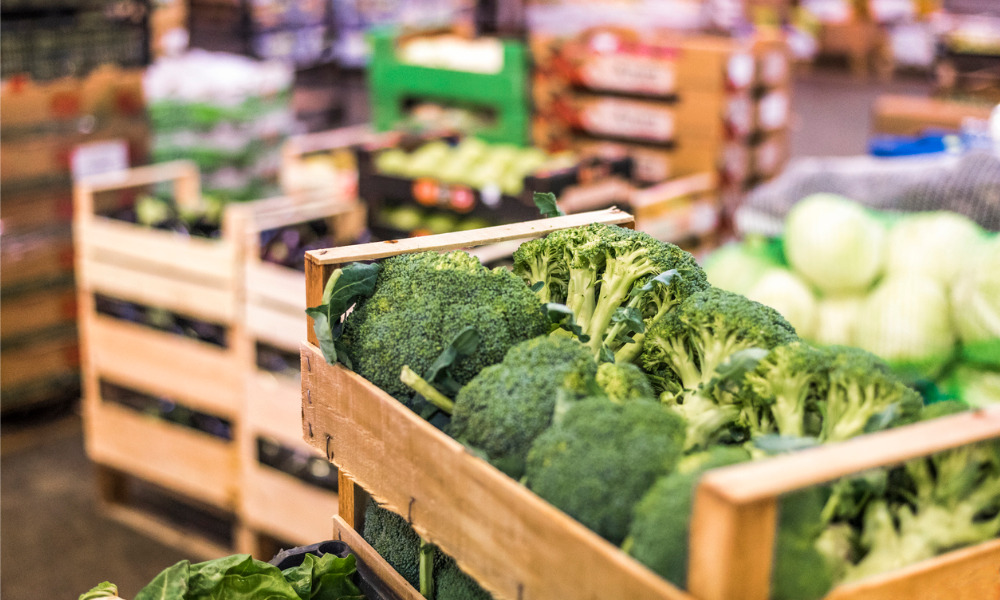Unique conditions for the sector make an ESG analysis a crucial part of successful investment strategy

Responsible investing (RI) means getting exposure to the companies and sectors best positioned to weather the storms of our present and future. That’s a message the responsible investing team at Desjardins wants all advisors to understand. As a growing investor class seeks to put their money where their values are, advisors can get equipped for the future by developing RI strategies set up to thrive in an uncertain world.
Two leaders from Desjardins’ RI team explained their responsible investing philosophy and outlined some of the ways a responsible investing approach can actually benefit the bottom line. They spoke, as well, to the unique food and agriculture sector as an investable area rich with RI opportunities for the values-minded investor.
“The strict definition of RI is the integration of environmental, social and governance (ESG) criteria into portfolio construction, but that’s a boring definition” says Deborah Debas, responsible investment specialist at Desjardins Wealth Management. “What we want people to understand is that ESG issues are the source of many of the challenges our economies and societies face. When we invest responsibly, we are investing in companies better prepared to face those challenges.”
Doing so, Debas says, involves taking a deeper look at a company beyond its balance sheets, but it results in a more robust, future-proof portfolio. The approach is already working. As climate change starts to make its economic impacts felt, Debas says companies with strong environmental policies are already outperforming. In the face of the COVID-19 pandemic, companies with high ESG scores have outperformed in the chaotic conditions, reflective of an approach to governance that can handle crises.
The food and agriculture sector, Debas says, faces threats from many of the world’s ongoing crises. With 800 million people globally living with hunger, the sector is subject to the global inequality crisis. With 650 million people in the world categorized as obese, the sector also faces an ongoing public health crisis. It’s being tested by urbanization, a growing global middle class that wants to eat more meat, and an ongoing labour crisis. Add, to all of that, the threat of the climate crisis which could derail the foundational geography of the food and agriculture world.
There’s opportunity in all of these challenges, though. Solutions to all these issues are being sought by leading firms and small and mid-cap companies that, by their work, are earning high ESG scores. Through an ESG analysis, the Desjardins team can find those companies best set up to take advantage of the risks they face and win for investors while they do good for the world. That analysis, coupled to a fundamental financial analysis, is the first step in Desjardins’ RI process and acts as they key to successful investment in the food and agriculture sector.
“We begin by selecting the ESG issues material to a particular company and analyze what the company is doing to manage their unique risks and opportunities,” says Solène Hanquier, senior advisor for responsible investment at Desjardins. “We also evaluate the companies against their benchmark to see if they’re improving against the rest of their industry in terms of ESG. We regularly engage with these companies and work to improve their ESG processes.”
Working with companies to improve their ESG practices, Hanquier says, better prepares them for environmental and social shocks as well as the significant regulatory pressure the industry faces. A food and agriculture meeting high ESG standards will pass regulatory tests with flying colours and will be ahead of the curve as new regulations come down.
Analysis and dialogue can also point Desjardins to moonshot winners, companies that could disrupt the agriculture and food sector for the good by innovating a means of making staple grain production less water intensive, for example. The analysis and dialogue helps manage risks and helps identify unicorns.
While the food and agriculture sector doesn’t often grab headlines against the Amazons and Zooms, Debas says it’s a crucial sector for clients seeking broader diversification and exposure to a nearly recession-proof stream of demand. As a sector that every client has a tactile experience of, too, she says it can be a great entry point to the RI conversation with your client, talking them through how their investments are going to companies set to earn well as they overcome the world’s ongoing crises.
“Advisors need to understand that investors are hungry for these kinds of investments,” Debas says. “They want to know their money matters and you need to be able to show them companies that share their priorities for healthy communities, healthy families, and a healthy planet. You can be the one to show them they can have a positive impact while they grow their portfolios.”
To learn more about Desjardins RI Solutions, visit www.desjardinsfunds.com.ri.



